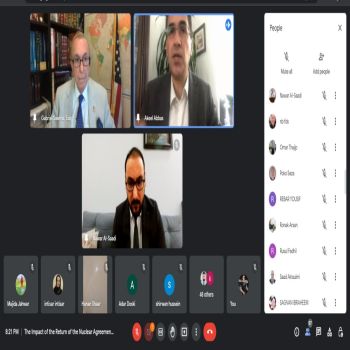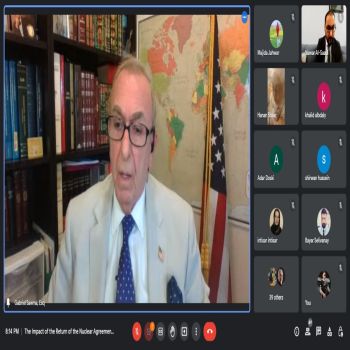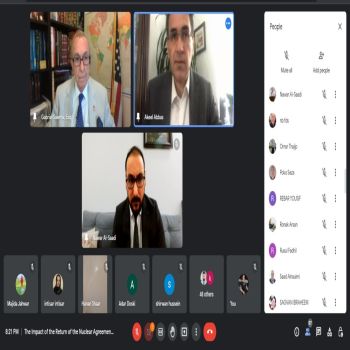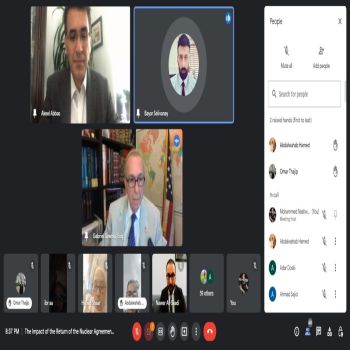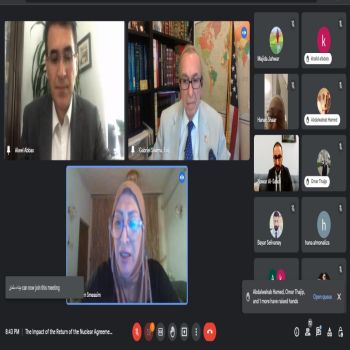the Research Center at Cihan University - Duhok held an international Workshop entitled: The Impact of the Return of the Nuclear Agreement between Iran and the United States of America on Iraq
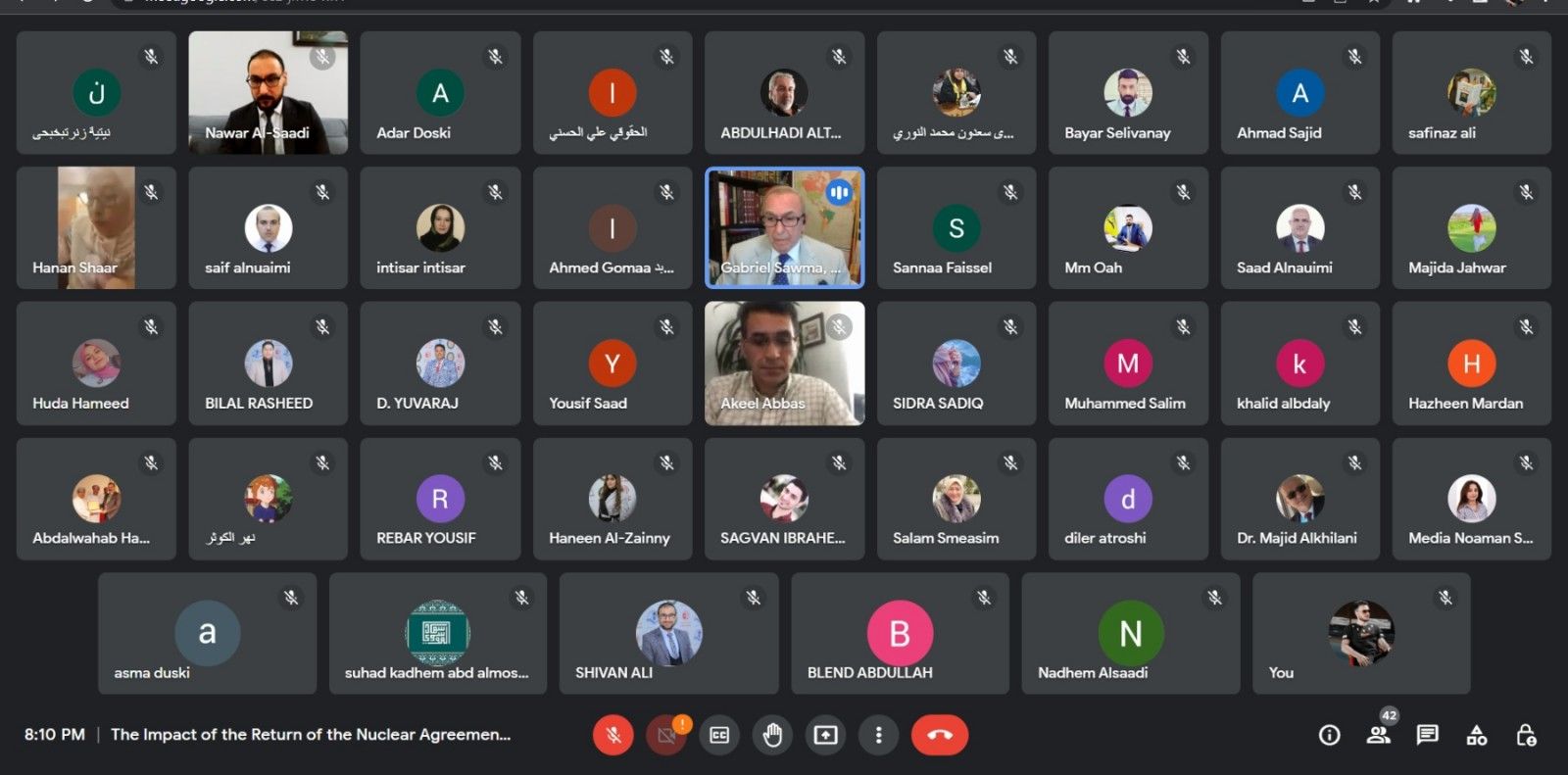
Last Monday, on 12.09.2022, the Research Center at Cihan University - Duhok held an international Workshop entitled “The Impact of the Return of the Nuclear Agreement between Iran and the United States of America on Iraq,” hosting two experts on Middle East issues:
- Professor Gabriel Soma is a professor of international law and advisor to former US President Donald Trump, and an expert in Middle Eastern studies and laws.
- Dr. Aqil Abbas, a specialist in Middle Eastern affairs, holds a Ph.D. in Cultural Studies from Purdue University, USA. His field of research and publications is with national and religious identities in the Middle East.
In addition to the presence of a large number of political, media and academic figures from different universities.
The session was moderated by Dr. Nawar Al-Saadi, Professor of International Economics and Director of the Research Center at Cihan University - Duhok.
The session summary is as follows:
The Iranian nuclear agreement is an American Iranian understanding concluded in 2015 between the five permanent members of the Security Council + 1 (Germany) under the name of the Joint Comprehensive Plan of Action.
Under which Iran agreed to dismantle its nuclear program and open its facilities to international inspections in exchange for sanctions relief.
Many of the plan's restrictions expire, meaning they expire. For example, from 2026, restrictions on centrifuges for uranium enrichment will be lifted.
By the end of 2030, restrictions on the amount of low-enriched uranium, which has been set at 3.67%, will be lifted.
President Trump found that money obtained by Iran after sanctions were lifted has been used to support organizations that the United States considers terrorist.
President Trump withdrew from this understanding in May 2018.
During his election campaign, Biden promised that if he won the presidency, he would return to the nuclear understanding with Iran on the condition that Iran curb its production of ballistic missiles and stop its support for terrorist organizations. The first round of negotiations began in Vienna on April 6, 2021. European envoys acted as mediators, moving between the Iranian and American delegations.
Iran rejected President Biden's demands and set two conditions: first - removing the National Guard from the terrorism list, and second - there are traces of uranium found by the International Atomic Energy Agency in three undeclared Iranian sites. The IAEA wants to conduct investigations into this matter.
The Biden administration rejected the first Iranian demand because it was not related to the nuclear file, and it also rejected the second demand because the IAEA is independent, and it conducts investigations when it decides to do so.
Iran was satisfied with the US administration's answer regarding the Revolutionary Guards, but it insisted on stopping investigations regarding the effects of uranium.
As a result, negotiations have now stopped.
The impact of the Iranian file on Iraq
Iranian influence in Iraq began after the US invasion in 2003. And this influence kept increasing for two main reasons, first - the religious reason, because the majority of the Iraqi people (about 60%) are Shiites. In Iran there is the city of Qom, which is an important center for Shiites, and there are two important centers in Iraq for Shiites as well: Najaf and Karbala. Second - the political reason in the sense that controlling a large country with a Shiite majority enables Iran to export its Shiite ambitions to the countries of the region and then to all parts of the world.
In order for Iran to control Iraq, it must work to expel the American forces. If it succeeds, Iran will have complete control over Iraq.
At present, the Quds Force of the Iranian Revolutionary Guards monitors the internal affairs of Iraq, and the Iraqi sovereignty is under attack by Iran on a daily basis.
What encourages Iran to destabilize Iraq is the lack of internal solidarity and the collapse of internal social cohesion.
Iran poses a threat not only to Iraq, but to all Arab countries, through its proxies and other means. At the present time, it dominates Lebanon, Syria, Yemen and Iraq.
Iran's return to a nuclear understanding in exchange for the lifting of some US sanctions will give it huge sums of money that will enable it to provide its Iraqi militias with money and weapons.
At the end of the presentation of the speakers, the dialogue and discussions began, as there were a number of questions and inputs from the personalities present in the session.

